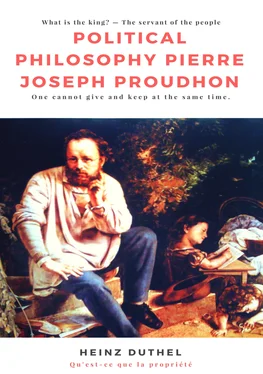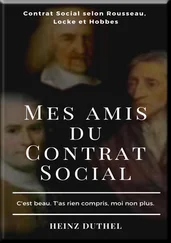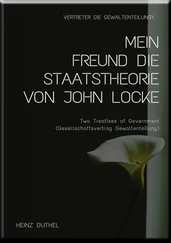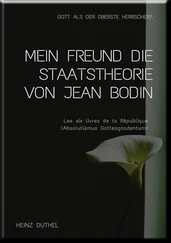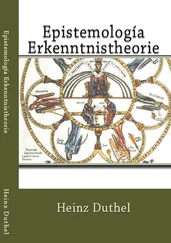After getting entangled a few times on the subjects of will, liberty, and personality; after having distinguished between immaterial-natural property, and material-natural property, a distinction similar to Destutt de Tracy's of innate and acquired property, — M. Joseph Dutens concludes with these two general propositions: 1. Property is a natural and inalienable right of every man; 2. Inequality of property is a necessary result of Nature, — which propositions are convertible into a simpler one: All men have an equal right of unequal property.
He rebukes M. de Sismondi for having taught that landed property has no other basis than law and conventionality; and he says himself, speaking of the respect which people feel for property, that "their good sense reveals to them the nature of the original contract made between society and proprietors."
He confounds property with possession, communism with equality, the just with the natural, and the natural with the possible. Now he takes these different ideas to be equivalents; now he seems to distinguish between them, so much so that it would be infinitely easier to refute him than to understand him. Attracted first by the title of the work, "Philosophy of Political Economy," I have found, among the author's obscurities, only the most ordinary ideas. For that reason I will not speak of him.
M. Cousin, in his "Moral Philosophy," page 15, teaches that all morality, all laws, all rights are given to man with this injunction: "Free being, remain free." Bravo! Master; I wish to remain free if I can. He continues: —
"Our principle is true; it is good, it is social. Do not fear to push it to its ultimate.
"1. If the human person is sacred, its whole nature is sacred; and particularly its interior actions, its feelings, its thoughts, its voluntary decisions. This accounts for the respect due to philosophy, religion, the arts industry, commerce, and to all the results of liberty. I say respect, not simply toleration; for we do not tolerate a right, we respect it."
I bow my head before this philosophy.
"2. My liberty, which is sacred, needs for its objective action an instrument which we call the body: the body participates then in the sacredness of liberty; it is then inviolable. This is the basis of the principle of individual liberty.
"3. My liberty needs, for its objective action, material to work upon; in other words, property or a thing. This thing or property naturally participates then in the inviolability of my person. For instance, I take possession of an object which has become necessary and useful in the outward manifestation of my liberty. I say, `This object is mine since it belongs to no one else; consequently, I possess it legitimately.' So the legitimacy of possession rests on two conditions. First, I possess only as a free being. Suppress free activity; you destroy my power to labour. Now it is only by labour that I can use this property or thing, and it is only by using it that I possess it. Free activity is then the principle of the right of property. But that alone does not legitimate possession. All men are free; all can use property by labour. Does that mean that all men have a right to all property? Not at all. To possess legitimately, I must not only labour and produce in my capacity of a free being, but I must also be the first to occupy the property. In short, if labour and production are the principle of the right of property, the fact of first occupancy is its indispensable condition.
"4. I possess legitimately: then I have the right to use my property as I see fit. I have also the right to give it away. I have also the right to bequeath it; for if I decide to make a donation, my decision is as valid after my death as during my life."
In fact, to become a proprietor, in M. Cousin's opinion, one must take possession by occupation and labour. I maintain that the element of time must be considered also; for if the first occupants have occupied everything, what are the new comers to do? What will become of them, having an instrument with which to work, but no material to work upon? Must they devour each other? A terrible extremity, unforeseen by philosophical prudence; for the reason that great geniuses neglect little things.
Notice also that M. Cousin says that neither occupation nor labour, taken separately, can legitimate the right of property; and that it is born only from the union of the two. This is one of M. Cousin's eclectic turns, which he, more than anyone else, should take pains to avoid. Instead of proceeding by the method of analysis, comparison, elimination, and reduction (the only means of discovering the truth amid the various forms of thought and whimsical opinions), he jumbles all systems together, and then, declaring each both right and wrong, exclaims: "There you have the truth."
But, adhering to my promise, I will not refute him. I will only prove, by all the arguments with which he justifies the right of property, the principle of equality which kills it. As I have already said, my sole intent is this: to show at the bottom of all these positions that inevitable major, equality; hoping hereafter to show that the principle of property vitiates the very elements of economical, moral, and governmental science, thus leading it in the wrong direction.
Well, is it not true, from M. Cousin's point of view, that, if the liberty of man is sacred, it is equally sacred in all individuals; that, if it needs property for its objective action, that is, for its life, the appropriation of material is equally necessary for all; that, if I wish to be respected in my right of appropriation, I must respect others in theirs; and, consequently, that though, in the sphere of the infinite, a person's power of appropriation is limited only by himself, in the sphere of the finite this same power is limited by the mathematical relation between the number of persons and the space which they occupy? Does it not follow that if one individual cannot prevent another — his fellow-man — from appropriating an amount of material equal to his own, no more can he prevent individuals yet to come; because, while individuality passes away, universality persists, and eternal laws cannot be determined by a partial view of their manifestations? Must we not conclude, therefore, that whenever a person is born, the others must crowd closer together; and, by reciprocity of obligation, that if the new comer is afterwards to become an heir, the right of succession does not give him the right of accumulation, but only the right of choice?
I have followed M. Cousin so far as to imitate his style, and I am ashamed of it. Do we need such high-sounding terms, such sonorous phrases, to say such simple things? Man needs to labour in order to live; consequently, he needs tools to work with and materials to work upon. His need to produce constitutes his right to produce. Now, this right is guaranteed him by his fellows, with whom he makes an agreement to that effect. One hundred thousand men settle in a large country like France with no inhabitants: each man has a right to 1/100,000 of the land. If the number of possessors increases, each one's portion diminishes in consequence; so that, if the number of inhabitants rises to thirty-four millions, each one will have a right only to 1/34,000,000. Now, so regulate the police system and the government, labour, exchange, inheritance, &c., that the means of labour shall be shared by all equally, and that each individual shall be free; and then society will be perfect.
Of all the defenders of property, M. Cousin has gone the farthest. He has maintained against the economists that labour does not establish the right of property unless preceded by occupation, and against the jurists that the civil law can determine and apply a natural right, but cannot create it. In fact, it is not sufficient to say, "The right of property is demonstrated by the existence of property; the function of the civil law is purely declaratory." To say that, is to confess that there is no reply to those who question the legitimacy of the fact itself. Every right must be justifiable in itself, or by some antecedent right; property is no exception. For this reason, M. Cousin has sought to base it upon the sanctity of the human personality, and the act by which the will assimilates a thing. "Once touched by man," says one of M. Cousin's disciples, "things receive from him a character which transforms and humanizes them." I confess, for my part, that I have no faith in this magic, and that I know of nothing less holy than the will of man. But this theory, fragile as it seems to psychology as well as jurisprudence, is nevertheless more philosophical and profound than those theories which are based upon labour or the authority of the law. Now, we have just seen to what this theory of which we are speaking leads, — to the equality implied in the terms of its statement.
Читать дальше
